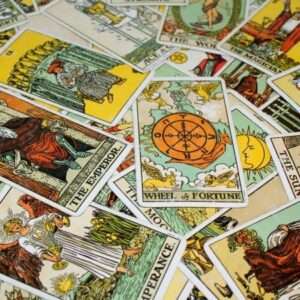Lit Hub Weekly: April 26 - 30, 2021
THE BEST OF THE LITERARY INTERNET

-
If you’ve ever wanted to attend a rave deep in Chernobyl’s exclusion zone, now’s your chance. | Lit Hub Photography
Article continues after advertisement -
“The atmosphere was mostly awkward silences, slight terror at having their poems chosen for discussion, and equal terror at having them ignored.” When Sylvia Plath and Anne Sexton met in (a very relatable) workshop. | Lit Hub
-
A hundred days into Joe Biden’s presidency, Rebecca Solnit reckons with the effects of the last presidency: “It was a disorder from which we were forever trying to emerge into order, like people clawing a slimy bank, only to slump back into the ooze.” | Lit Hub Politics
-
Parul Sehgal on Alison Bechdel, Hermione Hoby on Jhumpa Lahiri, Leslie Jamison on Susan Taubes, and more of the Reviews You Need to Read This Week. | Book Marks
-
Michael Brandman, producer and crime writer, on ten crime films that perfectly honored their source material. | CrimeReads
Article continues after advertisement -
“Bailey is the story now, but Roth still looms over it all. This fiasco has tendrils reaching into every level of media and publishing.” Jo Livingstone considers the industry-wide implications of the Blake Bailey allegations. | The New Republic
-
Despite a petition signed by more than 200 Simon & Schuster employees and 3,500 outside supporters, the publisher will move ahead with plans to publish Mike Pence’s memoir. | Vanity Fai
-
“Tan inspired me and so many others who followed to write the stories that only we could tell.” Vanessa Hua on the incalculable impact of Amy Tan. | PBS American Masters
-
Create a biodiverse oasis, even in a concrete jungle: Jeff VanderMeer offers a guide for rewilding a balcony. | Esquire
-
A rediscovered essay by Raymond Chandler, comprising a set of instructions to his secretary, shows a “more personal and lighthearted” side to the writer. | Los Angeles Times
Article continues after advertisement -
Put a mustache on it: Kristen Arnett considers jokes in fiction. | Poets & Writers
-
“It’s a strange thing to have a business that part of you doesn’t really want people to come to—at least not before it’s safe.” On opening a small-town bookstore in the middle of a pandemic. | Texas Monthly
-
Listen to an interview with Crystal Wilkinson, who was recently named Kentucky’s next poet laureate. | WKMS
-
Read What’s the Time, Mr. Wolf?, a novella by Lauren Groff. | The New Yorker
-
“What surgeon, in need of an operation, would take the scalpel to herself?” Jhumpa Lahiri on self-translation. | Words Without Borders
Article continues after advertisement -
Read the story behind Whoever Said Dykes Can’t Cook?—the 1983 lesbian cookbook that combined art, food, and fundraising. | Atlas Obscura
-
Here’s how John Waters is getting through the pandemic. | NYRB
-
“Why should justice and equality be contingent on a parading of wounds?” Katherine Angel on what happens when women write about their pain. | Aeon
-
“Like many systems that appear meticulous, writing citations is a subjective art. Never more so than in fiction, where citation is an entirely other kind of animal.” On literary citation and reading with one eye on Google. | The Drift
-
Can the nonsense-heavy work of Lewis Carroll “orient us away from racially charged assumptions about human advancement that lie deep in the modern psyche”? | Los Angeles Review of Books
Article continues after advertisement
Also on Lit Hub:
Eula Biss on how motherhood radicalized Adrienne Rich • Edward White examines Hitchcock’s treatment of women • Kate Guadagnino on finding solace in restoring a childhood dollhouse • Why have so many authors refused to let their heroines age? • Elissa Washuta talks about the desire to write a big book • Jaime Fuller tracks down two perfect quarantine reads • Brandi Carlile remembers the existential dread of an 80s childhood • Cecilia Muñoz considers the myths wrapped up in immigration policy • Capitalism will have a heyday with our emotional attachments to AI • What’s a philosopher, anyway? • Tobias Carroll looks to Ian Sinclair’s idea of “walking with a thesis” • Margaret Kimball on spilling her family’s secrets through graphic memoir • Faith Merino on growing up in a conspiracy theory household • Kate Summerscale on the violent haunting that rattled an English suburb • Tom Whyman recommends books that explore philosophy through fiction • Maria Mutch on ditching the writing plan • Jason Guriel considers the legacy of Kay Ryan • Catriona Silvey wonders about the counterintuitive appeal of time loop stories • On the unlikely legacy of Milman Perry, who changed how we read Homer • On the women written out of the Oxford English Dictionary’s origin story • “How long can an albatross live with a green toothbrush stuck in its gullet?” • On the specific struggle of writing about a close group of friends during quarantine • Lauren Cerand remembers Giancarlo DiTrapano • Leidy Klotz probes the cultural origins of our need to add • Genki Ferguson expands on our understanding of objectophiliacs • Kimberly Grey on chronic pain and losing her mother • Ann McCutchan on writing a long-due biography of Marjorie Kinnan Rawlings
The Best of Book Marks:
“Once again Mrs. Woolf makes use of her remarkable method of characterization”: a 1927 review of Virginia Woolf’s To the Lighthouse • Fingersmith, Moby-Dick, The Year of Magical Thinking, and more rapid-fire book recs from J. Courtney Sullivan • A month of literary listening: AudioFile’s best audiobooks of April • New titles by Jhumpa Lahiri, Martha Wells, and Elissa Washuta all feature among the Best Reviewed Books of the Week
More from CrimeReads:
Nominees for the Edgar Awards discuss the purpose of crime fiction and writing during the pandemic • Meg Gardiner with ten writing tips for keeping your thriller lean, mean, and exhilarating • We live in a world that conditions us to fear mental illness instead of to treat it. Vince Granata on the deadly consequences of this approach • Michael Nava on the LAPD’s secret history of citizen spying • Honoring the legacy of Eleanor Taylor Bland: a roundtable discussion on a legendary author • Olivia Rutigliano on the dognapping ring that terrorized 19th-century London, and the poet who fought back • Nick Kolakowski on getaway drivers in fiction and the dark side of the American Dream • Jesse Q. Sutanto on writing a cozy mystery inspired by the cheerful, conflicting advice of her wacky Indonesian family • Check out the best reviewed crime novels of April • Amy Suiter Clark with seven great thrillers that play with form



















